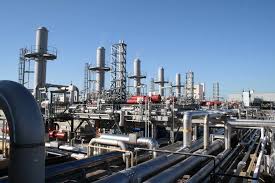Gas and oil companies are continuously facing numerous challenges in the global market due to various factors such as geopolitical tensions, environmental concerns, and fluctuating oil prices. These challenges have greatly impacted the operations and profitability of gas and oil companies worldwide. In this article, we will explore some of the key challenges that gas and oil companies are currently facing in the global market and their potential impact on the industry.
Gas and oil companies face numerous challenges in the global market, such as fluctuating oil prices, increasing competition from renewable energy sources, and mounting environmental and regulatory pressures. Additionally, geopolitical tensions, natural disasters, and economic downturns can also affect the industry. Companies must adapt to these challenges by investing in new technologies, diversifying their energy portfolios, and implementing sustainable practices to remain competitive in the global market.
The Impact of Oil Companies on Global Climate Change

Gas and oil companies play a significant role in the global economy, providing the necessary resources to power industries, transport, and heating. However, their operations also contribute to environmental issues such as air and water pollution, as well as greenhouse gas emissions. As the world shifts towards renewable energy sources, gas and oil companies are facing challenges in adapting to this changing landscape. Regulatory pressures are also increasing, prompting companies to innovate and find more sustainable practices. Despite these challenges, the future for gas and oil companies holds opportunities for investment in clean energy and reducing their environmental impact.
Oil companies have a significant impact on global climate change due to their extraction, production, and distribution of fossil fuels. The burning of these fuels releases carbon dioxide and other greenhouse gases into the atmosphere, contributing to the warming of the planet. Additionally, oil companies often engage in practices such as deforestation, which further exacerbates climate change by reducing the planet's carbon sinks. Furthermore, these companies have been criticized for lobbying against climate regulations and funding misinformation campaigns to downplay the severity of the issue. In recent years, there has been growing pressure on oil companies to transition to renewable energy sources and reduce their carbon footprint.
Understanding the Role of Gas Companies in the Energy Market

Understanding the role of gas companies in the energy market involves examining their impact on supply and demand, pricing, and overall market dynamics. Gas companies play a crucial role in providing natural gas to power homes, businesses, and industries, as well as generating electricity and fueling vehicles. They also contribute to the development of infrastructure and technology for gas extraction, storage, and distribution. Furthermore, gas companies must navigate regulatory and environmental policies, as well as competition from alternative energy sources, to remain competitive and meet the evolving needs of consumers and the energy market.
Challenges Faced by Oil Companies in the Transition to Renewable Energy
egypt gas and oil services company
Some of the challenges faced by oil companies in the transition to renewable energy include the high capital costs of investing in renewable energy infrastructure, the need to retrain and retool the workforce for renewable energy technology, the uncertainty surrounding future government policies and regulations, the potential financial strain from stranded assets, and the risk of losing market share as the demand for fossil fuels declines. Additionally, there may be resistance from within the company and from stakeholders who are reluctant to change their business model. Adapting to these challenges will require strategic planning, innovative thinking, and a willingness to embrace change.
How Gas and Oil Companies are Adapting to Environmental Regulations
Gas and oil companies are adapting to environmental regulations by investing in cleaner and more sustainable technologies. They are also implementing stricter emissions controls, monitoring systems, and environmental management practices to minimize their impact on the environment. Additionally, many companies are exploring alternative energy sources and renewable energy solutions to reduce their reliance on fossil fuels. Overall, the industry is striving to balance their business operations with environmental responsibility and sustainability.
The Future of Gas and Oil Companies in a Changing Energy Landscape
The future of gas and oil companies in a changing energy landscape is uncertain as the world transitions to cleaner and more sustainable sources of energy. With the increasing focus on renewable energy and the urgency to address climate change, the demand for fossil fuels is expected to decline in the coming years. Gas and oil companies are facing increasing pressure to adapt to this changing landscape and to invest in renewable energy technologies. Many companies are diversifying their portfolios by investing in wind, solar, and other renewable energy sources. Some are also exploring carbon capture and storage technologies to reduce their carbon emissions. However, the transition to a low-carbon economy poses significant challenges for gas and oil companies. They are likely to face stranded assets as the demand for fossil fuels decreases, and there is a growing risk of financial losses associated with these assets. Additionally, the reputational damage caused by their contribution to climate change is a significant concern for these companies. Despite these challenges, gas and oil companies have the potential to play a role in the transition to a more sustainable energy landscape. They possess the technical expertise, infrastructure, and financial resources necessary to drive innovation in renewable energy and contribute to the development of low-carbon technologies. Ultimately, the future of gas and oil companies in a changing energy landscape will depend on their ability to adapt and transform their business models to align with the goals of a sustainable and low-carbon future. This will require a proactive approach to innovation, investment in renewable energy, and a commitment to reducing their environmental impact.
In conclusion, gas and oil companies continue to face significant challenges in the global market, including fluctuating prices, increasing environmental regulations, and growing competition from renewable energy sources. Despite these obstacles, it is clear that gas and oil companies will need to adapt and innovate in order to remain competitive and sustainable in the evolving energy market. The ability of gas and oil companies to navigate these challenges will be crucial for meeting the world's increasing energy demands while also addressing the urgent need to reduce carbon emissions.
global oil and gas services company
